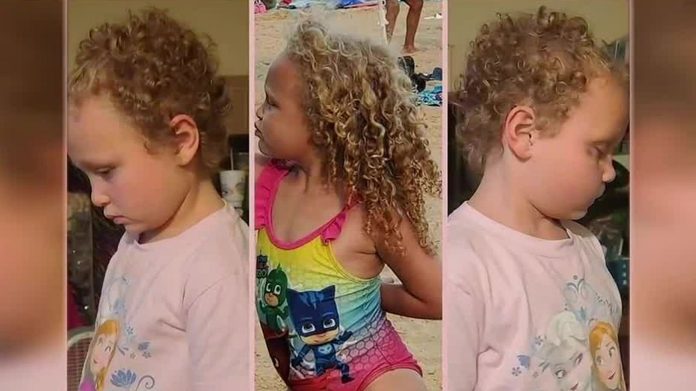Parenting is a journey fraught with challenges, but perhaps none as poignant as the betrayal of trust when a child’s well-being is compromised in the very environment meant to nurture them. Such was the case for Jimmy Hoffmeyer, whose daughter Jurnee’s experience of having her hair cut without consent exposed not only the fragility of trust in our educational institutions but also the insidious nature of hair discrimination. In this narrative, we delve into Jimmy’s courageous battle for justice, exploring the broader societal implications of racial bias and the profound impact of advocating for our children’s rights.
The Unraveling of Trust:
It was an ordinary day like any other when Jurnee Hoffmeyer returned home, her vibrant curls now marred by the unyielding blade of ignorance. The revelation that her hair had been trimmed without consent sent shockwaves through the Hoffmeyer household, prompting a cascade of emotions ranging from disbelief to righteous anger. What began as a simple act of grooming without permission soon escalated into a harrowing ordeal as Jurnee’s autonomy was repeatedly violated, leaving her father, Jimmy, grappling with the weight of parental responsibility and the need to protect his daughter’s dignity.
Navigating the Intersection of Identity and Injustice:
For Jimmy, a man of mixed heritage, Jurnee’s ordeal struck a particularly resonant chord, serving as a stark reminder of the pervasive biases that continue to permeate our educational systems. As a society, we extol the virtues of diversity and inclusion, yet instances like these lay bare the uncomfortable truths of systemic discrimination. Jimmy’s assertion that the haircut may have been racially motivated forces us to confront the harsh realities of privilege, power dynamics, and the enduring legacy of racial bias within our schools.
The Fight for Accountability:
In the face of adversity, Jimmy refused to capitulate to silence. His decision to pursue legal recourse against the school district is not merely a quest for financial restitution but a demand for accountability. By holding the district responsible for its alleged failure to properly train and supervise its staff, Jimmy seeks to enact systemic change that will safeguard the dignity and rights of all students, regardless of their background. His unwavering resolve serves as a beacon of hope, inspiring others to stand up and speak out against injustice.
A Testament to Resilience:
Despite the trauma inflicted upon her, Jurnee remains a symbol of resilience and fortitude. Her transition to a different school marks not only a new chapter in her educational journey but also a testament to the indomitable spirit of youth. Through her courage and determination, she challenges us to reevaluate our preconceived notions of beauty, identity, and worth. Her story serves as a rallying cry for change, igniting conversations about representation, cultural sensitivity, and the imperative of valuing diversity in all its forms.
Conclusion:
In the intricate tapestry of parenthood, moments of adversity often serve as catalysts for profound transformation. Jimmy Hoffmeyer’s unwavering commitment to his daughter’s cause not only exposes the pervasive nature of hair discrimination but also underscores the urgent need for systemic reforms within our educational institutions. As we bear witness to their journey, may we be inspired to stand in solidarity with them, advocating for a world where every child is free to embrace their identity without fear or prejudice.
image soure : tip hero










